There has been a lot of talk on whether a certain diet is relevant for cancer patients or whether it can really help prevent cancer. The talk is much needed given the fact that various researches on the subject suggest that cancer cells are usually dependent on certain kinds of food to develop (1, 2). For example, cancer cells are greedy for sugar in order to grow (12). Glucose is cancer’s gasoline. In PET scans, a special kind of sugar is injected into the patient’s bloodstream to track down different tumors in the body (4). So, various approaches and researches suggest that nutrition can prevent, stop the progression of cancer or even reverse it in some cases. Our immune system is dependent on the foods we give to it and a carefully-chosen diet, of natural, affordable foods might do wonders in various cases of cancer.
No one food alone can reduce the risk of cancer. However, if you keep a balanced diet, always know what foods are rich in vitamins, minerals, and antioxidants and always pay attention to your weight and active lifestyle, cancer can be fought through. It’s important to know which foods can actually be beneficial in your overall health and could, actually, reduce the risk of cancer or other perilous diseases.
Table of Contents
Cancer-fighting foods
So, let’s see which could be the 15 cancer-fighting foods that could reduce the risk of cancer.
1. Berries
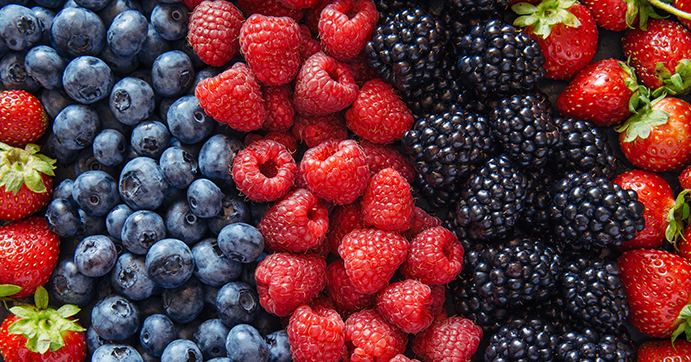
Berries contain vitamin C and a plethora of antioxidants (5). It has been proven that antioxidants protect the body from any kind of cell damage (6). Cell damage means, in most tragic cases, skin cancer, or even bladder, lung, breast, esophagus cancer (7).
How to eat berries:
- You can eat them fresh from the garden, frozen or even dried
- You can add them to your morning cereal serving or favorite yogurt
- You can add them in a quick, healthy, low-fat, tasty smoothie
- You can go a little bit on the sophisticated side and prepare a delicious oatmeal blueberry muffin
Summary: Berries are rich in antioxidants and vitamin C. The high antioxidant content protects the body from any cell damage, which can lead to cancer. Eat a bowl of berries for a snack, add to oatmeal or breakfast cereal, blend frozen berries in smoothies, or add them to baked goods such as whole wheat berry muffins or pancakes.
2. Grapes

Grapes contain a lot of antioxidant resveratrol (8). Resveratrol is a type of natural phenol produced by plants and microorganisms (9) and its role in human health and disease is the subject of avid research. Some studies have shown that it can stop breast, liver, stomach or lymphatic cancer (10, 11)
How to eat grapes:
- You can just grab a handful as a snack or as a part of a salad
- You can mix grapes in a chicken salad
- Cool them as a low-fat, delicious ice cream
- Grapes are fine as part of hot dishes as well
Summary: Grapes are high in a specific antioxidant called resveratrol, which is a natural phenol produced by plants. It has shown to reduce breast, liver, stomach, and lymphatic cancers. Eat them as a snack, add to salads, mix in with chicken salad, freeze them for a sweet treat, or even add them to hot dishes.
3. Broccoli

Broccoli, along with cauliflower, cabbage, Brussels sprouts, bok choy, and kale contain important compounds which, studies claim, can protect the body from stomach cancer, mouth, pharynx, larynx or esophagus cancer (12, 13). So, why is broccoli really special? Broccoli is rich in sulforaphane, which might have anti-cancer properties (14). There’s one research that proved that sulforaphane can reduce the size of breast cancer cells by an impressive 75% (15). Overall, there could be named around 35 studies which showed competent evidence that eating more cruciferous vegetables (that is broccoli, cauliflower, cabbage, Brussels sprouts, bok choy, and kale) could reduce the risk of cancer (16, 17).
How to eat broccoli:
- You can make a refreshing soup with broccoli, avocado, garlic, non-fat milk, and low-fat sour cream
- You can steam the broccoli with a bunch of your favorite spices
- You can eat broccoli raw with fat-free ranch dressing
Summary: Broccoli is rich in sulforaphane, which has been shown to have anti-cancer properties. Eating more cruciferous vegetables in general, such as cauliflower, cabbage, brussels sprouts, bok choy, kale, and broccoli can tremendously reduce risk of cancer. Add broccoli to soups and stews, steam and top with salt, pepper, and your favorite spices, or simply eat it raw with hummus or low-fat ranch dip.
4. Tomatoes
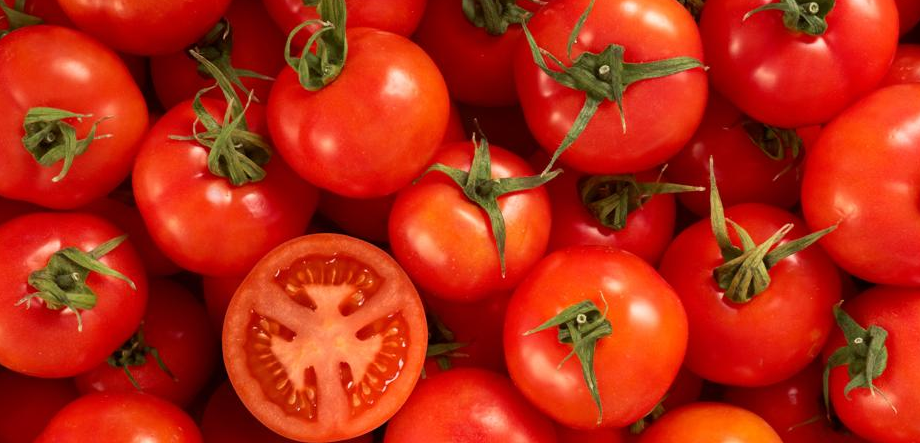
Tomatoes contain an antioxidant called lycopene which also gives them their famous red color (18). Lycopene is believed to be “responsible” for preventing prostate cancer (19, 20). The chances are even better with tomato sauce or even ketchup. (21)
How to eat tomatoes:
- Tomatoes are probably the easiest food to eat. You can add them to your everyday lunch sandwich
- You can add tomatoes to your salad
- You can eat tomatoes with different kinds of pasta dishes
- Also, you can eat tomato sauce which was proved to have anti-cancer properties as well. A study on 47,365 people found that a considerable dose of tomato sauce is directly linked to preventing prostate cancer (22)
Summary: Tomatoes are rich in an antioxidant called lycopene, which has shown to reduce risk of prostate cancer. Add sliced tomatoes to sandwiches, chop and incorporate into a salad, toss into pasta dishes, or make your own tomato sauce using fresh tomatoes, herbs, and spices.
5. Carrots
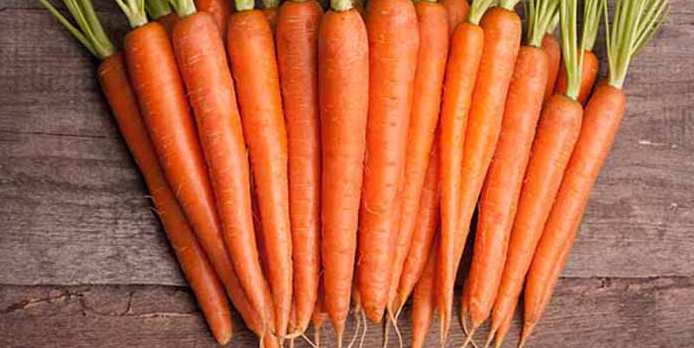
Carrots are rich in vitamin K, vitamin A, and antioxidants (23). Also, one compound that carrots are mostly known for is beta-carotene (24), which also gives them their orange color. There have been some studies lately which showed a vital link between a daily intake of beta-carotene and a strong immune system (25, 26). A good immune system also leads to preventing certain types of cancer (27).
Summary: Carrots are high in vitamins A, K, and antioxidants. It is especially high in beta-carotene, which helps to build a strong immune system. Slice and eat carrots as a snack with hummus, add shredded carrots to oatmeal or muffins, toss into soups or stews, or simply roast carrots with olive oil, salt, pepper, and a dash of ginger for a tasty side.
6. Walnuts
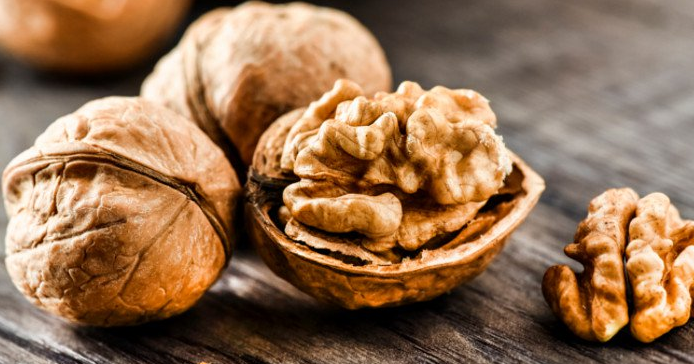
The American Institute for Cancer Research (28) has led some studies in the field of walnuts exhibiting cancer-preventing properties. Walnuts are the most focused-on type of nuts when it comes to cancer research. Walnuts are rich in pedunculagin (29). Our bodies turn this compound into urolithins, which bind to estrogen receptors, and might play a major role in preventing breast cancer (30). One study on mice revealed that whole walnuts and walnut oil had more effect as a tumor-suppressing gene than vegetable oil (31).
Summary: Walnuts are very healthy and are rich in pedunculagin, which plays a role in reducing risk of breast cancer. Add walnuts to oatmeal or cereals, chop and add to muffins or pancakes, toss in with salads, or mix with dried fruit for an energy-boosting trail mix snack.
7. Legumes

Beans, peas, and lentils are an important source of fiber (32). A lot of research has been made in order to discover dietary fiber’s properties of reducing the risk of cancer (33, 34). A recent analysis of 14 studies showed that high legume consumption can lower the risk of colorectal cancer (35). Also, there are high hopes that people with a diet rich in bean fiber are less likely to develop breast cancer (36).
Summary: Diets rich in beans, peas, and lentils show promising results in reducing risk of cancer, especially colorectal and breast cancers. Incorporate these to your diet by adding to soups, stews, salads, bean dips, or even swapping regular pasta for bean or lentil pasta.
8. Fatty fish
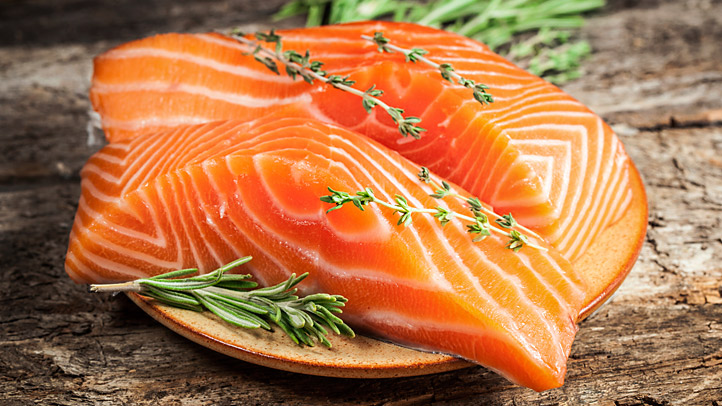
Fatty fish is the favorite of many. There’s nothing you cannot like about salmon, mackerel, or anchovies and you are right to think like this. You might also be happy to find out that fatty fish are rich in different kinds of nutrients, from vitamin B to potassium and omega-3 fatty acids (37, 38). There have been studies showing that people who liked to eat a lot of freshwater fish had a 53% lower risk of developing colorectal cancer than those who ate freshwater fish only occasionally (39).
Moreover, a study conducted on 68,109 people revealed that the people who had a diet that consisted of consuming fish oil supplements at least four times a week were 63% less likely to further develop colon cancer than those who did not (40).
Summary: Fatty fish, such as salmon, mackerel, or anchovies, is rich in many nutrients including B-vitamins, potassium, and omega-3 fatty acids. Those who eat plenty of freshwater fish have a lower risk of developing colorectal cancer. Consuming fish oil may even reduce risk of colon cancer. Fish is easy to cook, you can simply sauté it in a pan with olive oil, lemon, dill, salt, and pepper, or roast in the oven.
9. Apples
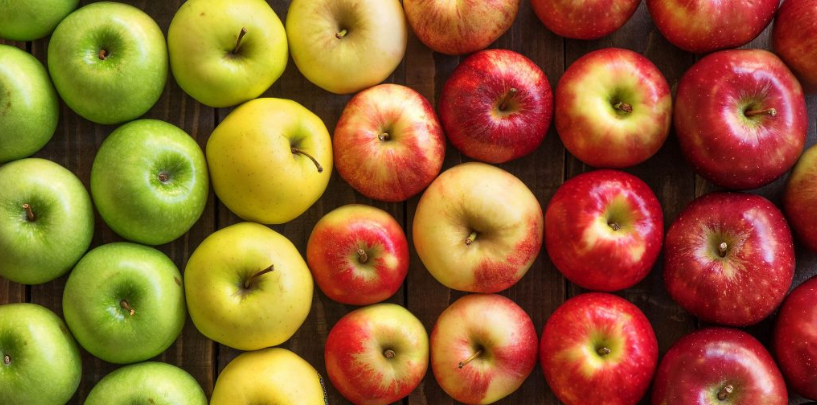
“An apple a day keeps the doctor away” is an old saying that might not be too far from the truth. Polyphenols, a compound that apples contain has hopeful anti-cancer qualities (41). Polyphenols are proved to prevent different types of inflammations (42), cardiovascular diseases (43) and other kinds of infections and there are also high hopes they can fight cancer and tumors (44, 45).
In 2018, an important study published in the Journal of Food and Drug Analysis (46), showed that apple phloretin can block the growth of breast cancer cells, without any effects to normal cells.
Summary: Apples contain polyphenols, which is a compound that has anti-cancer properties and helps reduce inflammation. Apples pair well with nut butter as a snack, can be shredded into oatmeal, breakfast cereal, muffins, or pancakes, or cooked with savory dishes such as pork.
10. Garlic

Garlic contains an active component called allicin which is known amongst the specialists as a cancer cell killer (47), at least this is how it was shown in different test-tube studies (48). Moreover, 543,220 people were tested as a part of research showing that lots of Allium vegetables (garlic, onions, leeks) can lead to lower risks of developing stomach cancer (49) Another promising study conducted on 471 men showed that a higher intake of garlic can reduce the risk of further developing prostate cancer (50).
Summary: Garlic contains allicin, which has shown to reduce risk of stomach and prostate cancers. Onions and leeks also contain allium. Garlic can be incorporated into almost any dish, including pasta dishes, tacos, soups, stews, or even eggs. Mince fresh garlic and store in the freezer to easily add to dishes.
11. Flaxseed

Flaxseed is always a good idea when talking about healthy additions to your everyday diet. Moreover, recent research has proven that it can help decrease cancer development and can even kill cancer cells (51, 52). Furthermore, 32 women with breast cancer were the subject of research which revealed that a considerable dose of flaxseed can help decrease the tumor growth and cancer cells spread (53). In addition to this, during another research, 161 men were treated with flaxseed against prostate cancer and the result was very encouraging (54).
Summary: Consuming flaxseed can help decrease tumor growth and spread of cancer cells. You can easily add flaxseed to smoothies, oatmeal, soups, pancakes, or baked goods. It can even be used to substitute eggs in baking recipes. For every egg used in the recipe, mix 1 tablespoon of ground flax to 3 tablespoons water, let sit for 5 minutes, then incorporate into the recipe.
12. Citrus Fruits
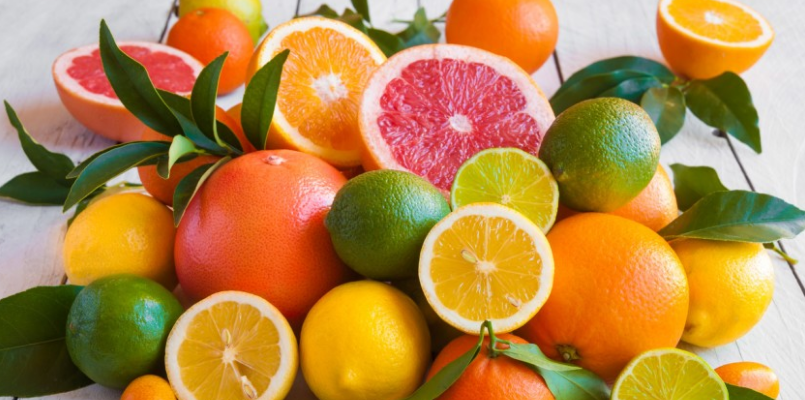
Lemons, limes, grapefruits or oranges are some of the best known citrus fruits. They’re quite healthy and also delicious. It was proved that participants in a study who consumed a high amount of citrus fruits showed a lower risk of developing digestive types of cancer (55), a high intake of citrus fruit of at least three servings per week can reduce the risk of stomach cancer by 28%. So, the conclusion is, you should include a few servings of citrus fruits in your weekly diet in order to lower the risks of developing certain types of cancer. The studies are not complete and it is still not a 100% proven fact, but the high hopes still remain.
Summary: Eating a few servings of citrus fruits every week can reduce risk of certain cancers. Lemons, limes, grapefruits, and oranges are the most popular citrus fruits. Squeeze a wedge of citrus fruit into salads, infuse into water, or simply add some grapefruit or orange slices to your breakfast and snack routine.
13. Turmeric

Turmeric is a spice that can provoke certain feelings of love or hate amongst your dear ones. What your friends might not know is that Turmeric contains Curcumin, a highly active ingredient with proven anti-inflammatory, antioxidant, and even anticancer effects (56, 57). For example, 44 patients suffering from lesions in the colon were given 4 grams of curcumin daily for 30 days. After that, the number of lesions was reduced by 40%. (58)
Summary: Turmeric contains curcumin, which is a proven anti-inflammatory, antioxidant, and anticancer ingredient. It can be easily incorporated into your daily routine. Add to roasted vegetables, rice dishes, potatoes, chicken, or even blend into your favorite smoothie.
14. Olive oil
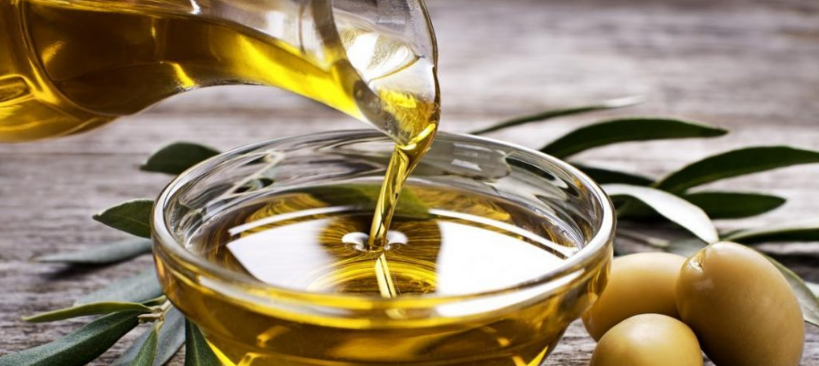
Olive oil is already famous for its health benefits, which might even help protect against cancer (59). There might also be other factors involved in this correlation between olive oil and cancer reduction which should also be taken into consideration before really declaring that olive oil can cure cancer. Nevertheless, there are still high hopes here as well.
Summary: Olive oil has many health benefits, including a reduced risk of cancer. Whisk it with balsamic vinegar for a fun salad dressing, mix it with herbs and spices for a fun bread dip, or use it to lightly sauté or roast your favorite vegetables.
15. Cinnamon
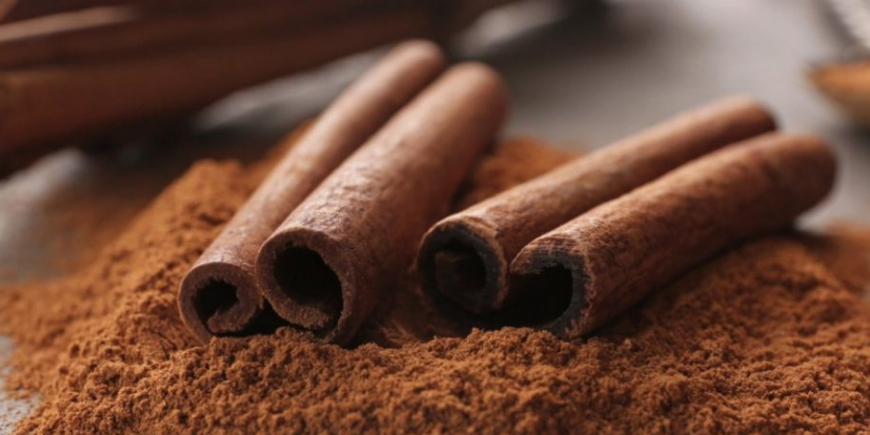
Cinnamon is also a well-known healthy spice known for its ability to reduce the sugar levels in the blood and ease inflammation in various cases (60, 61). Moreover, some test-tube and animal studies showed that cinnamon had some pretty interesting capabilities of blocking the spread of cancer cells (62). So, high hopes here as well.
Summary: Cinnamon has been shown to reduce blood sugar, inflammation, and even the spread of cancer cells. It can be easily sprinkled onto oatmeal, cereal, pancakes, muffins, or mixed in with smoothies, beef chili, and quick breads.
Conclusion
As new studies are still to be made public, there are high hopes that cancer can be treated and prevented and in the near future, it might not play such a deadly role in our world’s health.

